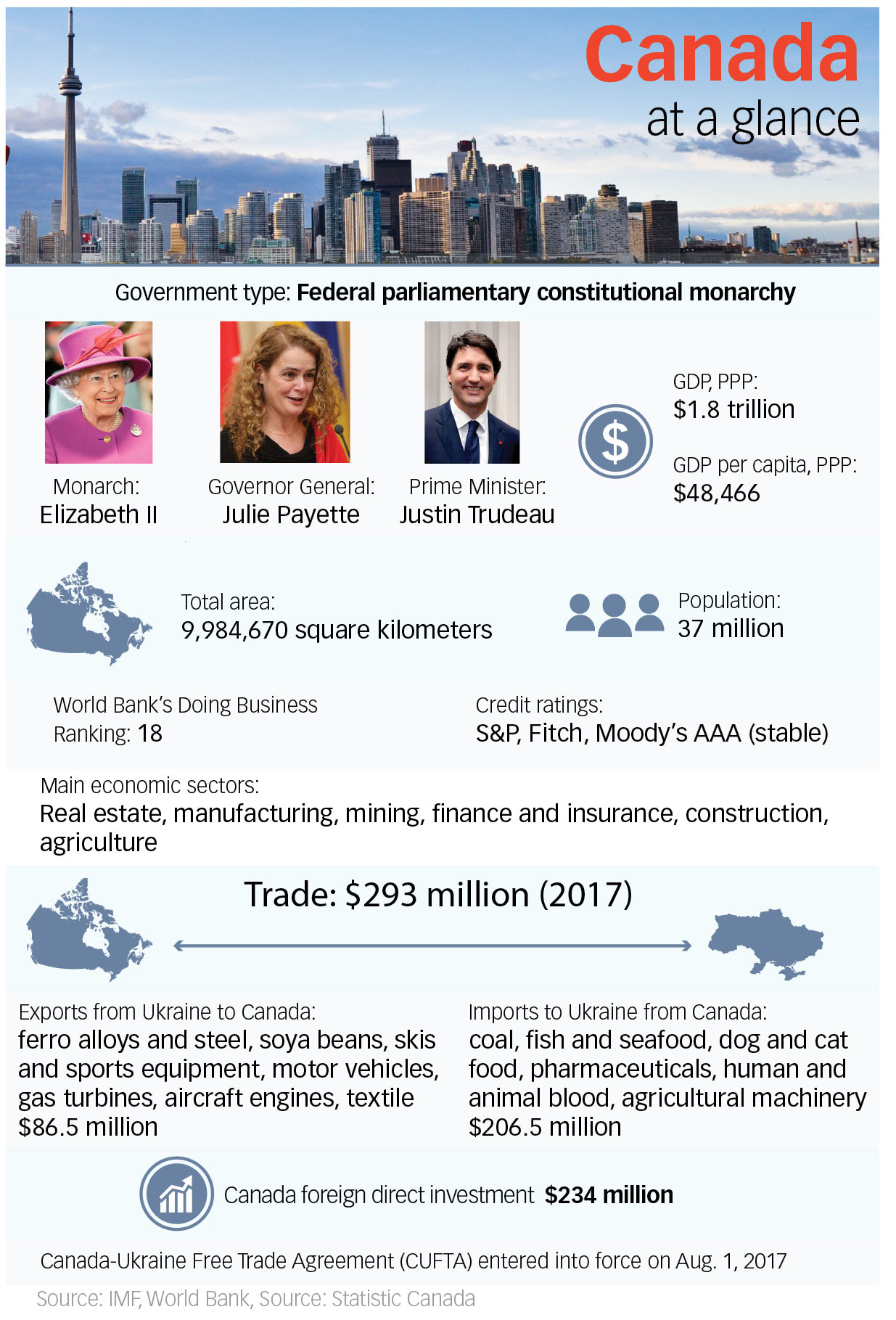Ahead of the traditional July 1 Canada Day interview with the Kyiv Post, Canada’s Ambassador to Ukraine Roman Waschuk — the son of Ukrainian parents — was pretty upbeat about progress on the reform front in Kyiv.
The interview took place only two days before the June 27 Ukraine Reform Conference in Copenhagen, Denmark, and with Ukraine’s politicians still coming up short in three must-have reforms required by the International Monetary Fund: a truly independent anti-corruption court, hikes in household gas prices to market levels and a realignment of the state’s $40 billion budget to bring the deficit down to 2.5 percent of gross domestic product rather than 4 percent.
Anti-corruption court?
“I think we are almost all the way there…We have the framework law. We have the implementation law. The second reading should give us a fix on the appeals procedure.”
Raising natural gas prices and reducing the deficit, which would require several billions of dollars in increased revenue, spending cuts or a combination of both?
These “are big housekeeping issues that the government needs to address and will be addressed in months to come.”
So let’s just forget that nobody has been convicted of corruption, hardly any of the $60 billion stolen from the banking sector and ex-President Viktor Yanukovych’s rule has been recovered, there’s still no rule of law, no agricultural land market, no privatization, no customs reform, no electoral reform and no uptick in foreign direct investment? No, Waschuk said.
Those issues are still important. But he doesn’t think that Ukraine’s politicians, ahead of presidential and parliamentary elections in 2019, can do more. “I would say: recognize what is the carrying capacity of the political system at this point with the players you’ve got,” Waschuk said from the Canadian Embassy in Kyiv.
“And recognize also that in a pre-election period, not everyone is willing to go” against public opinion. Take the resistance to creating an agricultural land market. Ukraine is the only nation in Europe besides Belarus that does not allow free trading — buying and selling — of agricultural land.
“Ukraine has actually, under the guise of protecting poor little old villagers, created massive lease-based farming operations almost unparalleled anywhere in the world. It is achieving the opposite aim of protecting the little guy. In fact, land reform would unlock opportunities for little guys and gals.”
Ukraine went into the June 27 Copenhagen conference with accomplishments, the ambassador said, including:
- adoption of a national security law that is “broadly acceptable to NATO partners,” Waschuk said, although critics say it does not bring transparency to defense spending, which takes up 5 percent of GDP;
- adoption of a law liberalizing foreign currency transactions;
- health care reform that takes effect on July 1 and seeks to emphasize patient service, rather than Soviet formulas for per-bed subsidies;
- education reform that moves away from Soviet-style rote learning with the adoption of a Canadian style curriculum in the early grades that puts “a big emphasis on group work, joint problem solving and laying foundations for lifelong learning rather than rote reproduction of poems and formulas from very traditional Soviet and post-Soviet education;”
- a privatization law that should, at last, allow Ukraine to start conducting a major selloff of 3,500 state-owned enterprises that, collectively, are major sources of corrupt profits and significant losses for taxpayers; and.
- a transparent, online value-added tax refund system that eliminates the arbitrariness and corruption of the previous methods of collection. “There’s quite a bit of legislative progress that has been made. It’s a matter of using the remaining months for implementation. It is implementation that will be important to national partners and international investors,” Waschuk said.
Additionally, but not unique to Ukraine’s politicians, lawmakers have a propensity to delay until the last minute.
“Ukraine has habit of pulling all nighters and trying to finish all its homework at the last minute; like me in university. My mother kept telling me not to do that. I persisted in the habit,” Waschuk said.
“The same thing seems to be happening in Ukraine.”
Top-level Canadian officials, including Foreign Minister Chrystia Freeland, will not only be participating in the June 27 Copenhagen conference, but Canada looks set to host next year’s Ukraine Reform Conference.
Besides Copenhagen, the inaugural event took place in London last year. The gathering of Ukraine’s Western friends assesses successes and failures in meeting the nation’s goal of becoming a modern European democracy able to qualify for the European Union someday.
Waschuk, the son of Ukrainian parents who settled in Canada after World War II, almost confirmed that Canada will be the host in 2019. “I would read the communique very carefully and you will find the answers,” he said.

